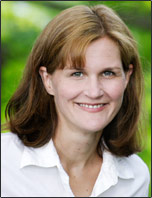While parametric regression models like linear and logistic regression are still the mainstay of statistical modeling, they are not the only, nor always the best, approach to predicting outcome  variables.
variables.
Classification and Regression Trees (CART) are a nonparametric approach to using values of predictors to find good predictions of values of a response variable.
On each step, the values of a predictor variable are optimally split such that they predict the values of the response variable. The set of splits across multiple predictors leads to a tree.
CART models work for either categorical or numerical response variables and predictor variables, and they are especially good at revealing complex interactions among predictors. So they work well as either an exploratory technique before or a predictive model instead of logistic or linear regression.
In this webinar, we’ll explore CART modelling and discuss what it is, which options work when, and how to interpret the output.
Note: This training is an exclusive benefit to members of the Statistically Speaking Membership Program and part of the Stat’s Amore Trainings Series. Each Stat’s Amore Training is approximately 90 minutes long.
About the Instructor

Karen Grace-Martin helps statistics practitioners gain an intuitive understanding of how statistics is applied to real data in research studies.
She has guided and trained researchers through their statistical analysis for over 15 years as a statistical consultant at Cornell University and through The Analysis Factor. She has master’s degrees in both applied statistics and social psychology and is an expert in SPSS and SAS.
Not a Member Yet?
It’s never too early to set yourself up for successful analysis with support and training from expert statisticians.
Just head over and sign up for Statistically Speaking.
You'll get access to this training webinar, 130+ other stats trainings, a pathway to work through the trainings that you need — plus the expert guidance you need to build statistical skill with live Q&A sessions and an ask-a-mentor forum.
Whenever you run multiple statistical tests on the same set of data, you run into the problem of the Familywise Error Rate. What this means is that the true probability
of a type 1 error somewhere in the family of tests you’re running is actually higher than the alpha=.05 you’re using for any given test.
This is a complicated and controversial issue in statistics — even statisticians argue about whether it’s a problem, when it’s a problem, and what to do about it.
In this webinar, we’ll talk about the meaning and consequences of these issues so you can make informed decisions in your data analysis.
We’ll also go through possible solutions, including post-hoc tests and the false discovery rate.
Note: This training is an exclusive benefit to members of the Statistically Speaking Membership Program and part of the Stat’s Amore Trainings Series. Each Stat’s Amore Training is approximately 90 minutes long.
About the Instructor

Karen Grace-Martin helps statistics practitioners gain an intuitive understanding of how statistics is applied to real data in research studies.
She has guided and trained researchers through their statistical analysis for over 15 years as a statistical consultant at Cornell University and through The Analysis Factor. She has master’s degrees in both applied statistics and social psychology and is an expert in SPSS and SAS.
Not a Member Yet?
It’s never too early to set yourself up for successful analysis with support and training from expert statisticians.
Just head over and sign up for Statistically Speaking.
You'll get access to this training webinar, 130+ other stats trainings, a pathway to work through the trainings that you need — plus the expert guidance you need to build statistical skill with live Q&A sessions and an ask-a-mentor forum.
Cluster analysis classifies individuals into two or more unknown groups based on a set of numerical variables.
It is related to, but distinct from, a few other multivariate techniques including discriminant Function Analysis, (more…)
Structural Equation Modeling (SEM) is a popular method to test hypothetical relationships between constructs in the social sciences. These constructs may be unobserved (a.k.a., “latent”) or  observed (a.k.a., “manifest”).
observed (a.k.a., “manifest”).
In this webinar, guest instructor Manolo Romero Escobar will describe the different types of SEM: confirmatory factor analysis, path analysis for manifest and latent variables, and latent growth modeling (i.e., the application of SEM on longitudinal data).
We’ll discuss the different terminology, the commonly used symbology, and the different ways a model can be specified, as well as how to present results and evaluate the fit of the models.
This webinar will be at a very basic conceptual level; however, it is assumed that participants have an understanding of multiple regression, interpretation of statistical tests, and methods of data screening.
Note: This training is an exclusive benefit to members of the Statistically Speaking Membership Program and part of the Stat’s Amore Trainings Series. Each Stat’s Amore Training is approximately 90 minutes long.
(more…)
Multicollinearity isn’t an assumption of regression models; it’s a data issue.
And while it can be seriously problematic, more often it’s just a nuisance.
In this webinar, we’ll discuss:
- What multicollinearity is and isn’t
- What it does to your model and estimates
- How to detect it
- What to do about it, depending on how serious it is
Note: This training is an exclusive benefit to members of the Statistically Speaking Membership Program and part of the Stat’s Amore Trainings Series. Each Stat’s Amore Training is approximately 90 minutes long.
(more…)
What is the relationship between predictors and whether and when an event will occur?
This is what event history (a.k.a., survival) analysis tests.
There are many flavors of Event History Analysis, though, depending on how time is measured, whether events can repeat, etc.
In this webinar, we discussed many of the issues involved in measuring time, including censoring, and introduce one specific type of event history model: the logistic model for discrete time events.
Note: This training is an exclusive benefit to members of the Statistically Speaking Membership Program and part of the Stat’s Amore Trainings Series. Each Stat’s Amore Training is approximately 90 minutes long.
(more…)
 variables.
variables.

